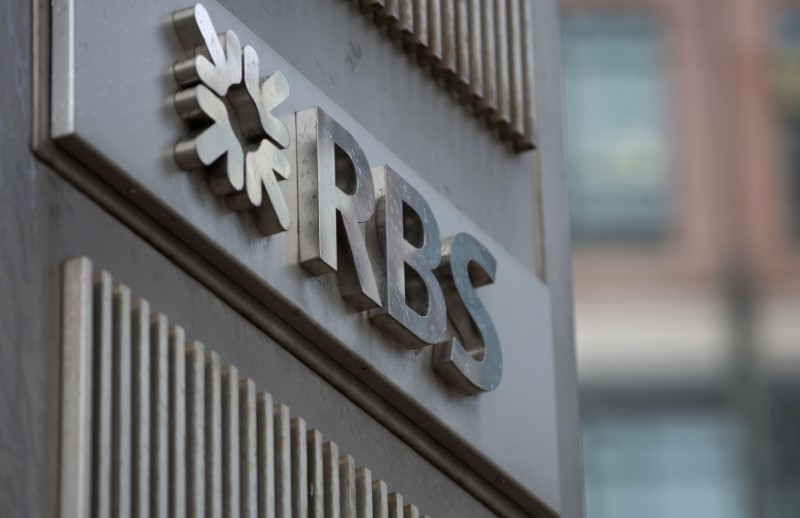By Andrew MacAskill
LONDON (Reuters) - Royal Bank of Scotland (L:RBS) has unveiled sweeping structural reforms ahead of new UK rules to separate its retail operations from riskier parts of its business, in an overhaul set to confine its historic RBS retail brand to Scotland.
In a statement on Friday, the lender said NatWest would become its main customer-facing brand in England, Wales and western Europe, while its Royal Bank of Scotland name, which dates back to 1727, will be used only in Scotland.This is the latest attempt by the bailed-out bank to rebuild its reputation among borrowers and taxpayers after it threatened to topple the UK financial system following years of reckless lending and a highly leveraged takeover spree on the eve of the financial crisis."Our proposed future structure under the ring-fencing legislation and our brand strategy are key elements of the bank we are becoming," Chief Executive Ross McEwan said in the statement.
The group holding company will remain Royal Bank of Scotland. Shares were trading down 4 percent at 170 pence by 0707 GMT.
The lender said its new ring-fenced bank would be called NatWest Holdings, comprising its core NatWest, Coutts & Co, Ulster Bank Limited and Ulster Bank Ireland DAC brands.
Its private bank, Adam & Company, will be renamed Royal Bank of Scotland PLC as part of the changes. Its Corporate and Institutional Banking business will be called NatWest Markets and will be held in a non ring-fenced entity together with the bank's Channel Islands operations.
The government-ordered ring-fencing initiative aims to avoid a repeat of the 2008 financial crisis, when banks' bad trading bets threatened to sink ordinary depositors and mortgage borrowers, leading to massive taxpayer-funded bailouts.
The new ring-fenced businesses, which will be funded and capitalised separately, must include UK retail banking and small business customers and most simple banking transactions.
Big global corporate customers and most investment banking activities will be held in a separate entity.
RBS, which is 73 percent owned by the British taxpayer, is the latest bank to announce how it plans to reform its business to comply with the changes, recommended by the Vickers Commission in 2011.

HSBC (L:HSBA) has outlined similar plans including the relocation of its UK business to Birmingham last year, while Barclays (L:BARC) has carved its business into two core divisions, including Barclays UK, to comply with the new rules.